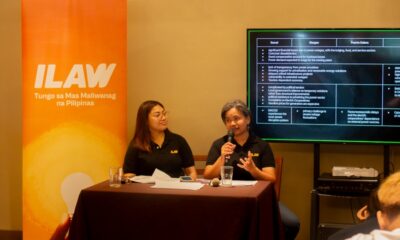News
EU-ASEP, DoE Tackle Energy Efficiency, Conservation
Stakeholders for sustainable energy recently gathered in Mandaue City for the Visayas Energy Efficiency and Conservation Forum for Local Development on Feb. 27-28, 2020.
The forum was conducted by the European Union-Access to Sustainable Energy Programme (EU-ASEP) in partnership with the Department of Energy (DOE), Asian Development Bank (ADB) and the ASEP Clean Energy Living Laboratories (ASEP-CELLs).
About 60 participants attended the said event.
Republic Act no. 11285 or the Energy Efficiency and Conservation (EEC) law was enacted on April 19, 2019.
The promulgation of the Implementing Rules and Regulations took place on Nov. 19, 2019.
The act emphasizes the roles and responsibilities of national government agencies and LGUs.
It institutionalizes EEC programs and approaches to secure a stable energy supply while promoting the development of efficient renewable energy technologies.
“With the Energy Efficiency and Conservation law in place, this is now the dawn to a more dynamic, holistic and synergistic movement to propel EEC as way of life be it in the government, private companies, communities, and most importantly in every household,“ said Lourdes Arciaga, chief Energy Resource Development and Utilization Division of DOE-Visayas Field Office.
One of the aims of the forum is to highlight the key points of the new EEC law and IRR to the Local Government Units (LGUs).
The areas of discussion also included the policy framework for the Local Energy Plans, necessary steps for LGUs and other agencies towards energy management, and showcasing successful energy-efficient projects.
Patrick Aquino, director for DOE Energy Utilization and Management Bureau, emphasized the importance of the IRR and the participation of the consumers.
He also presented projected savings for the coming years when conserving energy and discussed sanctions and fines imposed upon failure of compliance with the provisions of the law.
Aside from administrative sanction, violators will face penalties ranging from P10,000 to P1 million.
Criminal liability will also be imposed if outright violation had been committed.
During the forum, Architect Araceli Barlam, officer in charge of the City Environment and Natural Resources Office (OIC-CENRO) in Mandaue City, discussed the city’s “Green Building Ordinance.”
The said ordinance mandates buildings and other infrastructure to follow the principle of “green building” to ensure that building owners will use environment-friendly materials and methods.
With the enactment of the law, DOE along with partner organizations will conduct more fora and consultations to strengthen the implementation process. (poc/PIA7)
































